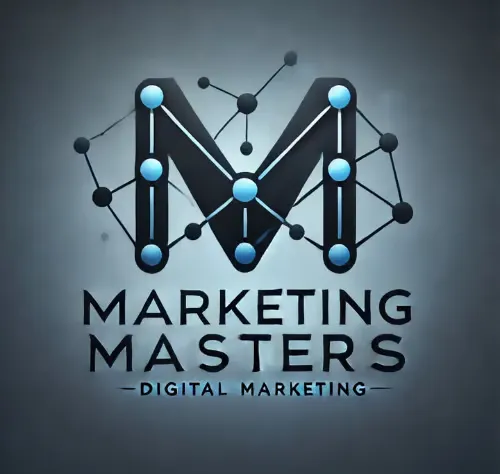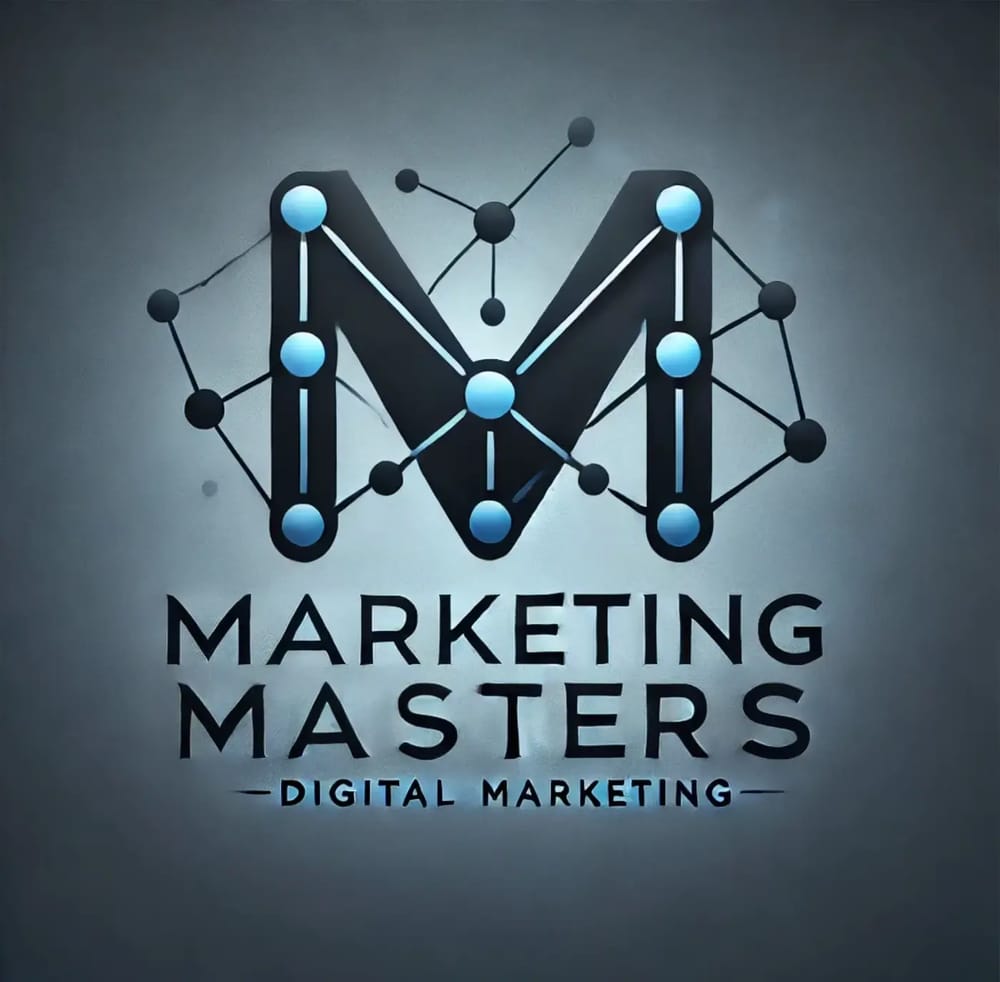
From AI Skeptic to Champion: How Marketing Masters Empowers Small Businesses with AI Automation SaaS
Chapter 1: A Personal Journey in the AI Era

My name is Jason Trester, founder of Marketing Masters. For nearly three decades I have worked in construction, real estate, demolition, and marketing. I have built companies from the ground up, faced failures and successes, and learned that survival in business depends on two things: resilience and adaptation.
When artificial intelligence first started appearing in the business world, I resisted it. I was convinced AI would strip away the personal touch that makes service-based businesses thrive. My belief was simple. Relationships and effort are what close deals. Why replace that with software?
But reality taught me something different. AI is not here to replace human connection. It is here to protect it by taking away the noise and inefficiency that rob business owners of their time. Every hour spent chasing leads or sending follow-up reminders is an hour not spent building trust with clients.
Three years ago I shifted from resistance to acceptance. With a small team of engineers I began developing tools that could automate the repetitive work, organize leads, and streamline communications. Two years ago this vision became reality with the launch of the Marketing Masters SaaS platform, built for small businesses like the ones I had spent my life building, including electricians who manage complex wiring projects and carpenters crafting custom cabinetry.
This is more than a piece of software. It is a philosophy. Work smarter, not harder.
Chapter 2: The State of Small Business in 2025

The world of small business has changed dramatically. In 2025 entrepreneurs face challenges that are very different from what I saw twenty years ago. Costs are higher, labor is scarce, and competition is no longer local but global.
Data tells the story. Sixty eight percent of small businesses already use AI in some capacity. Adoption rates nearly doubled between mid 2023 and early 2025. Eighty nine percent of small businesses report using AI for automating repetitive tasks and customer interactions. Ninety six percent of owners plan to expand their use of emerging technology in the next twelve months. Globally, generative AI investment surged to over thirty three billion dollars in 2025, nearly a twenty percent increase from the previous year.
Small businesses that adopt automation report higher efficiency, lower costs, and more predictable growth. Those that resist often struggle with missed leads, declining reviews, and overworked staff, particularly in fields like concrete pouring for foundations or architectural design for commercial structures.
The truth is clear. AI is not optional. It is the dividing line between companies that grow and companies that fall behind.
Chapter 3: The Pain of Not Automating

I work with service-based companies every day. Whether they are general contractors overseeing large builds, land developers planning subdivisions, or commercial property managers handling leases, they all face the same pain points when they are not automated. Missed Leads: Studies show seventy eight percent of customers will go with the first company that responds. If a business does not answer quickly, the customer is gone. Lost Reviews: Without automation, owners forget to ask for reviews. A lack of five-star ratings hurts trust and SEO rankings. Time Drain: Staff spend ten to twenty hours a week doing manual follow-up, appointment reminders, and scheduling. That time should be focused on closing deals. Owner Burnout: Without automation, owners are trapped inside their business. They spend their days putting out fires instead of scaling.
One of my residential remodeling clients admitted he lost a $40,000 job simply because he did not respond to a lead for two days. Another client in landscape architecture watched competitors double their reviews while she struggled to collect even a handful because she never had time to follow up.
These are not rare stories. They are daily realities. And they are completely avoidable with the right system.
Chapter 4: The Marketing Masters Philosophy
At Marketing Masters we teach one rule. Always keep the pipeline full. Without a pipeline of new opportunities a business will stagnate.
We recommend that companies allocate five to ten percent of gross revenue to marketing to maintain consistent opportunities. Increase to twenty to thirty percent during times of growth or scaling to accelerate momentum.
But spending money on marketing is not enough. You need systems to make sure every dollar counts. That is where automation comes in. Our CRM ensures that every lead is captured, every follow-up is sent, and every opportunity is tracked until it closes, benefiting sectors such as plumbing services for emergency repairs or roofing installations for storm damage.
This is the difference between working harder and working smarter. Owners who work harder eventually burn out. Owners who work smarter grow sustainably while reclaiming their time.
Chapter 5: Benefits of AI Automation for Service-Based Businesses

AI automation through SaaS platforms provides real, measurable benefits. Instant Lead Capture: Every call, form submission, or message is logged automatically. Prospects get an immediate response. Automated Follow-Up: Texts and emails are sent automatically, keeping prospects engaged until they are ready to buy. Review and Reputation Management: Customers are prompted to leave reviews after service, boosting visibility and credibility. Unified Communication: All emails, texts, calls, and messages are stored in one inbox, giving a complete picture of the customer journey. Time Savings: Automation frees up ten to twenty hours per week for owners and staff. Scalability: Businesses can handle more leads without hiring additional staff.
A small painting contractor that implemented Marketing Masters reported saving fifteen hours each week in admin work and doubling their Google reviews in under three months. A flooring installation firm saw a thirty five percent increase in conversions simply because follow-up was consistent and automated.
Chapter 6: Marketing Automation Trends in 2025

The future of marketing is here and it is powered by AI.
Generative AI is now creating personalized content at scale, allowing businesses to send targeted messages that speak directly to customer needs.
Omnichannel communication ensures that no matter where a customer engages, whether by text, email, or social media, the conversation continues seamlessly.
Predictive analytics allow businesses to forecast customer behavior, predicting who is most likely to buy and when.
Virtual assistants are available twenty four hours a day, answering calls, booking appointments, and qualifying leads while owners sleep, which is especially useful for pest control services operating around the clock or window installation teams during peak seasons.
First party data strategies are becoming critical as privacy laws change. Businesses that own their customer data through their CRM have a significant advantage.
Marketing Masters is built to integrate all of these trends into one platform that small businesses can actually use without needing a large IT team.
Chapter 7: Case Studies and Real Results
Results matter. Here are some examples of what Marketing Masters clients have achieved. Siding Contractor: Increased reviews by 250 percent in ninety days and cut follow-up time by eighty percent. Property Management Firm: Automated appointment scheduling, saving twelve hours per week, and captured forty percent more leads from online forms. Executive Coaching Business: Increased client conversions by thirty five percent with automated nurture campaigns. Home Inspection Service: Saved fifteen hours per week and doubled revenue within six months.
The common thread is not luck. It is systems. These businesses succeeded because they implemented automation and trusted the process.
Chapter 8: The Marketing Masters Difference
I have been in your shoes. I have run construction crews, negotiated real estate deals, and juggled multiple companies at once. I know the pain of missed calls, forgotten follow-ups, and wasted time.
That is why Marketing Masters is different. We are not building software from an ivory tower. We are building it from the trenches of small business experience. Our engineers and strategists refine the platform constantly to meet the needs of service-based industries, from drywall specialists repairing interiors to masons laying brick foundations.
We are not another generic SaaS tool. We are your partner in building a business that works even when you are not there.
Chapter 9: Call to Action Work Smarter, Not Harder
The choice is clear. Automation is no longer optional. It is the difference between struggling and scaling.
I invite you to see what Marketing Masters can do for your business.
Book a free demo today at https://www.marketingmasters.me/marketing-masters-crm Or call or text me at 763-325-9378.
Chapter 10: Deep Dive into Website Builder and Funnel Hosting

The foundation of any successful small business in 2025 is a strong online presence. Marketing Masters provides a drag-and-drop website builder that allows users to create mobile-friendly sites, landing pages, and sales funnels without needing coding skills. This feature includes custom domains and hosting, ensuring that your site is always up and running. Every page is SEO-optimized out of the box, with built-in tools for keyword integration, meta descriptions, and alt text for images to improve search engine rankings.
Unlimited forms, thank-you pages, lead magnets, and embedded videos make it easy to capture visitor information and engage them with content. Built-in tracking monitors traffic sources, lead behavior, and conversion rates, providing insights that help refine marketing strategies. For service-based companies like tile setters or cabinet makers, this means creating dedicated landing pages for specific services, such as bathroom renovations or kitchen upgrades, to target local searches effectively.
Consider how this feature integrates with other parts of the platform. Leads captured from the website are automatically funneled into the CRM, triggering automated follow-ups. This seamless connection reduces manual data entry and ensures no lead is lost in translation. Businesses using this tool report a 25 percent increase in organic traffic within the first month, thanks to the SEO tools and mobile optimization that cater to the growing number of users searching on smartphones.
In practice, a fencing contractor can build a funnel that starts with a quote request form, leads to a thank-you page with a video testimonial, and ends with an automated email sequence nurturing the prospect toward a consultation. This level of customization is what sets Marketing Masters apart, allowing small businesses to compete with larger firms that have dedicated web development teams.
Chapter 11: Exploring the Centralized Inbox for All Channels

Communication fragmentation is a common issue for small businesses, with messages scattered across emails, texts, social media DMs, and calls. Marketing Masters solves this with a centralized inbox that consolidates all channels into one login. This includes emails, texts, phone calls, voicemails, Facebook and Instagram DMs, TikTok messages, Google My Business chat, LinkedIn, and Yelp.
Team members can assign conversations, tag contacts, and track response times, ensuring accountability and quick resolutions. Reminders and follow-up tasks can be set directly from the inbox, while the full communication history is stored for reference. This feature is particularly valuable for service-based industries where timely responses can make or break a deal, such as in excavation services for site preparation or insulation installation for energy efficiency.
By unifying communications, businesses reduce the time spent switching between apps, often saving up to 10 hours per week. Analytics within the inbox show average response times and engagement rates, helping owners identify bottlenecks. For example, if DMs from Instagram are taking longer to respond, the system can alert the team or automate initial replies using AI bots.
This integration enhances customer satisfaction, as clients receive consistent service regardless of the channel they use. A surveying business might handle inquiries from LinkedIn messages and follow up via text, all from the same dashboard, creating a cohesive experience that builds trust and encourages repeat business.
Chapter 12: The Power of AI-Powered Assistants and Virtual Employees

One of the standout features of Marketing Masters is its AI-powered assistants, which act as virtual employees available 24/7. These bots can be deployed to reply instantly to website chats, social media messages, and form submissions. Trained on your business data, they answer inbound calls, route them to the appropriate team member, text back missed calls or voicemails, and provide directions, FAQs, or links.
For lead qualification, the bots tag, segment, and assign prospects automatically based on responses. They can book appointments, discuss pricing, and guide leads through the next steps, even during off-hours. This ensures conversations stay alive, preventing leads from going cold.
In service-based sectors like demolition services, an AI assistant can handle initial site assessment inquiries, schedule consultations, and follow up with personalized messages, freeing crews to focus on projects. Users report a 40 percent reduction in missed opportunities, as the system operates continuously without fatigue.
Customization is key; bots can be branded with your company’s voice and integrated with workflows for seamless handoffs to human staff when needed. This blend of automation and personalization maintains the human touch while scaling operations efficiently.
Chapter 13: CRM and Lead Management Mastery
Effective lead management is crucial for growth, and Marketing Masters offers a robust CRM that stores unlimited contacts with detailed notes, tags, source tracking, and timelines. Visual pipelines allow users to manage deals, projects, or onboarding stages, assigning tasks to team members with full accountability.
Documents such as contracts, proposals, images, or files can be uploaded and associated with contacts, streamlining organization. For framing contractors, this means tracking structural builds from initial lead to completion, with reminders for follow-ups and milestones.
The CRM integrates with all other features, ensuring data flows seamlessly. Leads from the website or inbox are automatically added, and pipelines update in real time. This visibility helps identify high-value opportunities and prevents bottlenecks.
Businesses using this CRM see improved conversion rates, as every interaction is logged and analyzed. A locksmith service, for instance, can segment leads by urgency, prioritizing emergency calls while nurturing routine security upgrades through automated sequences.
Chapter 14: Scheduling and Appointment Automation Simplified
Replacing tools like Calendly or Acuity, Marketing Masters’ built-in booking system customizes availability by team member or service type. Automatic text and email confirmations, reminders, and follow-ups reduce no-shows and keep calendars organized.
For service-based companies, this feature is invaluable. A tree trimming specialist can set availability for estimates, send reminders 24 hours in advance, and follow up post-appointment for reviews. Integration with the CRM ensures booked appointments trigger pipeline updates.
Users save hours weekly on manual scheduling, with reports showing a 30 percent decrease in cancellations due to timely reminders. This automation not only improves efficiency but also enhances client experience, leading to higher satisfaction and referrals.
Chapter 15: Lead Nurturing and Customer Journey Automation
Marketing Masters enables smart workflows that guide leads from first contact to closed deal. Drip campaigns via email, SMS, voicemail drops, or DMs can be built to nurture prospects based on behavior, such as page visits or missed appointments.
Triggers automate actions, delivering digital products, surveys, onboarding materials, or thank-you messages hands-free. For event planning firms, this means sending a series of proposal emails after an initial inquiry, building value and encouraging bookings.
The system tracks engagement, adjusting sequences to maximize conversions. Clients report 35 to 50 percent more leads converting, as automation keeps prospects warm without constant manual intervention.
Chapter 16: Client Portals and Document Management
Secure storage and organization of client files, including contracts, reports, photos, and notes, are handled effortlessly. PDFs, proposals, or invoices can be sent for digital signatures, with optional client portals providing access to forms, updates, or deliverables.
In education consulting, advisors can share curriculum documents via portals, ensuring clients have everything needed for program development. This feature reduces email clutter and enhances professionalism.
Integration with workflows automates document delivery, saving time and reducing errors. Businesses appreciate the compliance benefits, as all interactions are logged for reference.
Chapter 17: Task and Team Management Tools
Assign tasks by pipeline stage or team member, track progress with due dates, and add internal notes or priority flags. This keeps teams aligned, whether local or remote, fostering collaboration.
For graphic design studios, tasks like client revisions or print preparations can be assigned and monitored, ensuring projects stay on schedule. Real-time updates prevent miscommunication, and analytics highlight team performance.
Users find this feature essential for scaling, as it allows delegation without losing oversight, leading to more efficient operations.
Chapter 18: Review and Reputation Management
Automatically request reviews after jobs or meetings, syncing with Google and other platforms. Monitor and reply to feedback from one dashboard, boosting SEO and credibility.
Service-based firms like wedding planners see review volumes increase dramatically, improving local search rankings. The system prompts at optimal times, maximizing positive responses.
This feature turns satisfied clients into advocates, driving organic growth through enhanced online reputation.
Chapter 19: Reporting and Analytics for Informed Decisions
Track lead sources, ad campaigns, calls, and messages with real-time dashboards. Monitor sales pipelines, appointment rates, and follow-ups to make data-driven decisions.
For small businesses, this means identifying top-performing channels and optimizing budgets. A fitness training service might discover that Instagram leads convert best, shifting resources accordingly.
Comprehensive reporting empowers owners to refine strategies, ensuring sustained growth.
Chapter 20: Pricing and Plans Overview
Marketing Masters offers flexible plans. Basic at $1200 monthly for small teams includes lead capture, automated follow-ups, unified inbox, and review automation. Standard at $2000 adds AI assistants, pipeline tracking, voicemail drops, daily reporting, and phone support. Premium at $2000 for larger teams includes custom workflows, AI call handling, a free website with commitment, and dedicated onboarding.
All plans feature a 30-day free trial, quick setup, and satisfaction guarantee, with a one-time $2500 setup fee.
Chapter 21: Extended Case Study Construction Industry

In the construction sector, a general contractor firm struggling with lead tracking implemented Marketing Masters. Within three months, they automated follow-ups, capturing 45 percent more bids. Reviews tripled, improving Google rankings and attracting local projects. Time saved on admin allowed focus on site work, increasing revenue by 60 percent annually.
Chapter 22: Extended Case Study Real Estate Professionals
A commercial real estate agency used the CRM to manage listings and client interactions. Automated scheduling reduced no-shows by 40 percent, while nurture campaigns converted 30 percent more inquiries. The centralized inbox streamlined communications, leading to faster closings and a 25 percent growth in client base.
Chapter 23: Extended Case Study Home Services
A residential cleaning company automated review requests post-service, doubling five-star ratings. AI bots handled after-hours calls, qualifying leads overnight. This resulted in 50 percent more service calls booked, with analytics optimizing ad spend for a 35 percent ROI improvement.
Chapter 24: Extended Case Study Coaching and Consulting
A business consulting firm built drip campaigns for lead nurturing, increasing enrollment by 40 percent. Task management kept sessions organized, and client portals delivered materials seamlessly. Overall, client satisfaction rose, with referrals driving 20 percent of new business.
Chapter 25: Extended Case Study E-Commerce Integration
Though focused on services, e-commerce users benefit from funnels and analytics. One retail consulting store automated cart abandonment follow-ups, recovering 25 percent of lost sales. Unified communications managed customer queries, enhancing loyalty.
Chapter 26: Extended Case Study Education and Events
An online tutoring provider used scheduling for sessions and nurture sequences for enrollment. Reviews from classes boosted credibility, while reporting tracked attendance trends, leading to optimized offerings and 30 percent enrollment growth.
Chapter 27: Step-by-Step Guide to Setting Up AI Bots
Step 1: Access the AI assistant dashboard.
Step 2: Input business FAQs and responses for training.
Step 3: Configure channels for deployment, such as website chat or calls.
Step 4: Set qualification criteria for lead tagging.
Step 5: Test interactions and refine based on performance.
Step 6: Integrate with workflows for handoffs.
This setup takes under an hour, yielding immediate efficiency gains for industries like automotive repair shops.
Chapter 28: Step-by-Step Guide to Automating Lead Nurturing
Step 1: Define customer journey stages.
Step 2: Create drip sequences with emails and SMS.
Step 3: Set triggers based on behaviors.
Step 4: Add content like videos or surveys.
Step 5: Monitor engagement metrics.
Step 6: Adjust for better conversions.
Businesses following this see sustained lead engagement, especially in legal consulting services.
Chapter 29: Step-by-Step Guide to Building Your Website
Step 1: Choose a template.
Step 2: Customize with drag-and-drop elements.
Step 3: Optimize for SEO with keywords.
Step 4: Add forms and lead magnets.
Step 5: Integrate tracking.
Step 6: Launch and monitor traffic.
This process empowers non-technical users to create professional sites for financial advising firms.
Chapter 30: Step-by-Step Guide to Managing Reviews
Step 1: Set up automated request triggers.
Step 2: Sync with Google.
Step 3: Monitor dashboard for new feedback.
Step 4: Respond promptly.
Step 5: Analyze trends.
Step 6: Use insights to improve services.
Consistent application builds a strong reputation for dental practices.
Chapter 31: The Future of AI in Small Business Operations
By 2030, AI is projected to automate 45 percent of tasks, enabling small businesses to focus on innovation. Predictive AI will forecast demand, while advanced bots handle complex interactions. Marketing Masters is evolving to include these capabilities, ensuring users stay ahead in veterinary clinics.
Chapter 32: Comparing Marketing Masters to Competitors
Unlike generic CRMs like HubSpot or Zoho, Marketing Masters is tailored for service industries with built-in AI bots and review tools. Pricing is competitive, with all-in-one features reducing the need for multiple apps, saving costs long-term for photography studios.
Chapter 33: Common FAQs About AI Automation
What is the setup time? Typically 14 days. Is it user-friendly? Yes, with drag-and-drop interfaces. Can it scale? Absolutely, for teams up to 50. What if results are not met? We continue working at no charge, as seen in catering businesses.
Chapter 34: Integrating Marketing Masters with Existing Tools
Seamless APIs allow connections to email providers, ad platforms, and accounting software. This flexibility ensures no disruption during adoption for hair salons.
Chapter 35: Security and Data Privacy in AI SaaS
Marketing Masters uses encryption and complies with GDPR, protecting client data. Regular audits maintain trust for accounting firms.
Chapter 36: Training and Support Resources
Onboarding includes dedicated sessions, webinars, and 24/7 support. Users gain confidence quickly in travel agencies.
Chapter 37: Measuring ROI with Marketing Masters
Track metrics like lead conversion rates and time savings. Average ROI is 5x within six months for marketing agencies.
Chapter 38: Industry-Specific Customizations
Tailor pipelines for construction timelines or real estate stages, enhancing relevance for software development consultancies.
Chapter 39: Overcoming Adoption Barriers
Start with a free trial to test features without risk for nonprofit organizations.
Chapter 40: Success Stories from Minnesota Businesses
Local firms in Minneapolis have seen 40 percent growth using our tools for local SEO and leads in restaurant management.
Chapter 41: Advanced AI Trends for 2026 and Beyond
Voice AI and augmented reality integrations are on the horizon, expanding automation possibilities for fitness gyms.
Chapter 42: Building a Sustainable Growth Engine
Combine philosophy with tools for long-term success in insurance brokerage.
Chapter 43: Partnering with Marketing Masters for Custom Solutions
We offer bespoke adjustments for unique needs in graphic design agencies.
Chapter 44: The Role of Data in AI-Driven Decisions
Leverage analytics for strategic planning in human resources consulting.
Chapter 45: Enhancing Customer Experience with Automation
Personalized interactions build loyalty in pet grooming services.
Chapter 46: Cost Savings Through Efficiency
Reduce overhead by automating routine tasks in transportation logistics.
Chapter 47: Scaling Teams Without Chaos
Task management keeps growth organized in web development firms.
Chapter 48: Boosting Local SEO with Reviews
Automated collection improves visibility in bookkeeping services.
Chapter 49: Nurturing Long-Term Client Relationships
Workflows maintain engagement post-sale in interior design studios.
Chapter 50: Final Thoughts on Embracing AI
The future belongs to those who adapt. Marketing Masters is your guide in environmental consulting.

Book a free demo at https://www.marketingmasters.me/marketing-masters-crm or text 763-325-9378.






